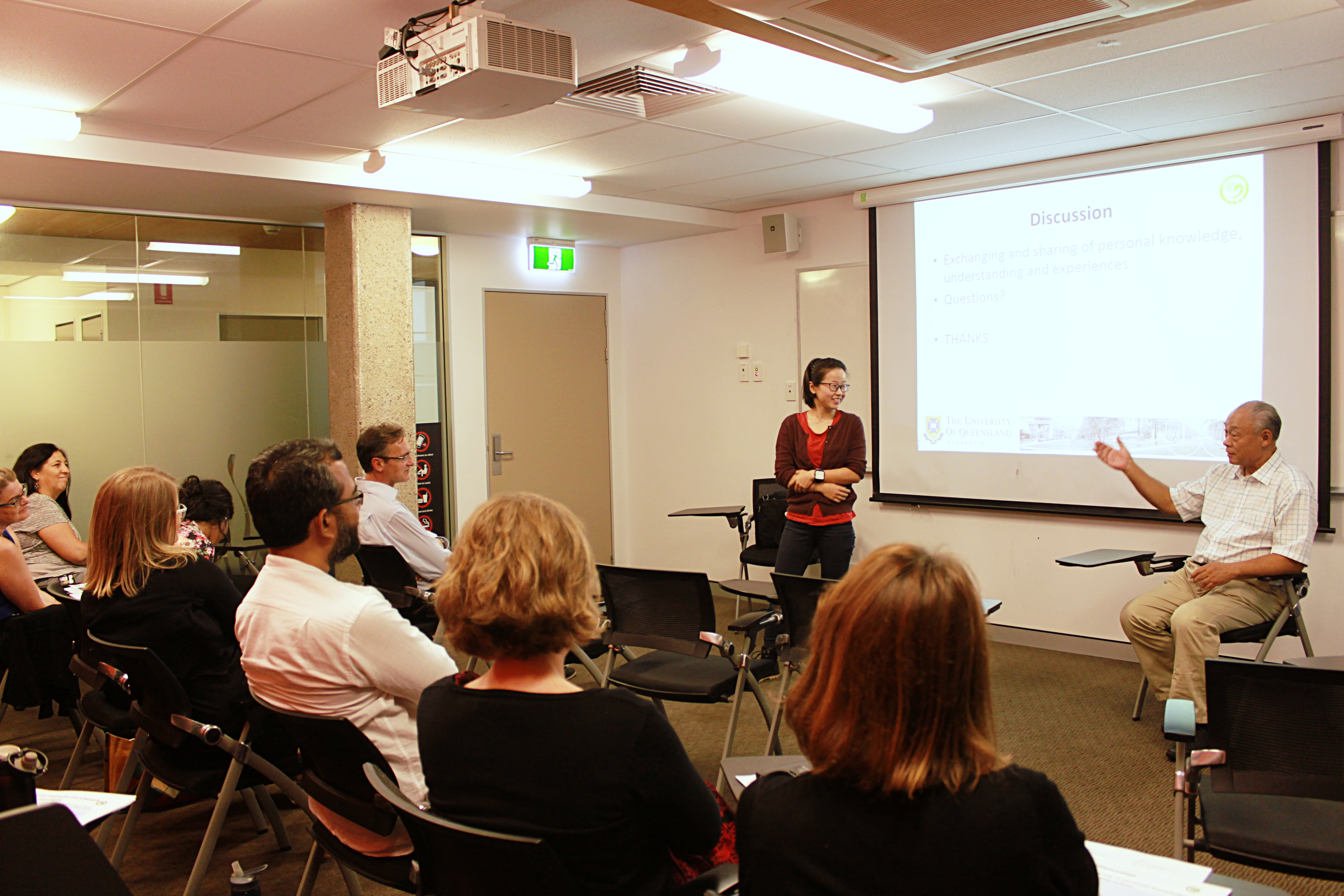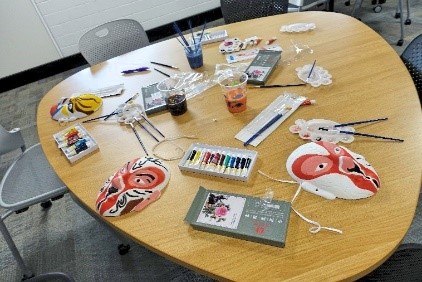The second half of 2020 focused on online offerings in line with COVID-19 safe practices, providing continued opportunities for language and cultural learning both within UQ and the local community.
In 2020, Mandarin learning through HSK and YCT language testing increased on previous years, representing a strong interest in obtaining an internationally-recognised certification for Mandarin proficiency. The 2020 test offerings were complemented by a pilot program in HSK preparation across the HSK 3, 4 and 5 levels. It has been a priority for the Institute throughout the year to continue to support students who have an interest in language, offering learning opportunities such as the preparation program and HSK/YCT test.
Key Events of Q3/Q4 2020:
2020 HSK test participant numbers up
In spite of the challenges raised with COVID-19 in 2020, UQ CI was pleased to have continued to support students at UQ and in the broader community in their language studies through the form of HSK testing. Offered in September, October and December to the QLD community, testing numbers increased significantly on 2019. Additionally, UQ CI had been able to support further testing at the request of local language schools to encourage a stronger uptake in HSK/YCT testing.
pleased to have continued to support students at UQ and in the broader community in their language studies through the form of HSK testing. Offered in September, October and December to the QLD community, testing numbers increased significantly on 2019. Additionally, UQ CI had been able to support further testing at the request of local language schools to encourage a stronger uptake in HSK/YCT testing.
The standard HSK test is offered across levels 1 to 6, testing reading comprehension, listening and writing skills. The YCT is a simplified HSK test aimed at younger learners of the language, and has been popular amongst younger students engaging with Mandarin.
Testing dates for 2021 along with registration information are listed on the UQ CI HSK webpage.
HSK preparation course pilot program
In September and October, Dr Haiyan Liang successfully delivered a pilot program focusing on test preparation for the HSK Mandarin proficiency test offered through UQ CI.
As a new initiative in 2020, the HSK preparation program came at the request of language students for assistance in adequately preparing for the tests. Run in September and October, the course provided an introduction, guidance and practice for HSK levels 3, 4 and 5. Each level offered 8 hours of tuition and was attended by both UQ and general community members.
Given the demand for such programs, UQ CI aims to run sessions again in 2021 to ideally coincide with key HSK testing dates in Semester 1 and 2. See Events.
Etiquette Course supports UQ staff development
Similar to previous years, CI again delivered a Chinese culture and  etiquette session in Semester 2 at UQ. Delivered as part of UQ’s staff development platform, the November 27 offering delivered online provided an in-depth introduction to Chinese Etiquette (beginner level). The course was again fortunate to welcome a presenter with extensive experiences and publications related to Chinese culture and etiquette.
etiquette session in Semester 2 at UQ. Delivered as part of UQ’s staff development platform, the November 27 offering delivered online provided an in-depth introduction to Chinese Etiquette (beginner level). The course was again fortunate to welcome a presenter with extensive experiences and publications related to Chinese culture and etiquette.
The November course was attended by staff of various backgrounds looking to develop their understanding of Chinese etiquette and how it relates to engagement with persons of a Chinese background. 2021 courses, both at the beginner and advanced level will be announced across UQ Staff Development and UQ Update in due course.
Teacher Workshop encourages best practice sharing
On November 24, UQ CI re-affirmed its commitment to the Queensland  Mandarin teaching community by providing a professional development opportunity on Exploring best practices and resources in Mandarin Teaching in Queensland. The online workshop welcomed three presenters from both Tianjin University and a Queensland-based high school. Attendees included teachers and administrators from UQ, Queensland primary and secondary schools and Brisbane-based language schools.
Mandarin teaching community by providing a professional development opportunity on Exploring best practices and resources in Mandarin Teaching in Queensland. The online workshop welcomed three presenters from both Tianjin University and a Queensland-based high school. Attendees included teachers and administrators from UQ, Queensland primary and secondary schools and Brisbane-based language schools.
Identifying the need for resourcing sharing, connections and communication amongst Queensland-based Mandarin language teachers, UQ CI was pleased to support this cause through the November workshop. In 2021, the Institute endeavours to further support Mandarin teaching through both online and offline engagement and development opportunities.
SLC Chinese Writing Competition
UQ CI was again invited to support a long-standing Chinese language  initiative in The University of Queensland’s annual Chinese Writing Contest facilitated by the UQ School of Languages and Cultures (SLC). First introduced in 1995, the competition has evolved to now extend across Queensland. The 2020 offering saw participation from 144 students across 32 Queensland primary and secondary schools, representing another strong year of language learning.
initiative in The University of Queensland’s annual Chinese Writing Contest facilitated by the UQ School of Languages and Cultures (SLC). First introduced in 1995, the competition has evolved to now extend across Queensland. The 2020 offering saw participation from 144 students across 32 Queensland primary and secondary schools, representing another strong year of language learning.
As a goal to extend opportunities to showcase Chinese writing skills, the writing competition remains an important link with school students studying the language. Along with the annual Taste of Chinese event at UQ, the competition also highlights UQ’s excellence and commitment to language learning at both the schools and university level, complementing the range of pathways and Mandarin language subjects offered through SLC.
UQ CI has long been a strong supporter of such initiatives in encouraging language learners in Queensland schools.
See full article here.
Cultural Course offered in Semester 2
Following on from a well-attended Semester 1 course, a second non- credit Chinese Culture course was offered in August to UQ students, staff and external participants. The course was part of the Institute’s cultural engagement offerings.
credit Chinese Culture course was offered in August to UQ students, staff and external participants. The course was part of the Institute’s cultural engagement offerings.
Delivered online across 4 sessions, each session focused on a different element of Chinese culture. Opportunities for discussion with participating students has been a key highlight for this course since it was introduced.
In 2021, UQ CI aims to continue to offer non-credit courses related to language and cultural learning that will benefit learners in Queensland develop their interest in Chinese language and culture. See Events.
Did you know?
With a population of over 1.3 billion people in a land size some 25 percent larger than Australia, language in China is often topical, and in some cases challenging in terms of communication and engagement with those in different parts of the country.
While Putonghua, or Mandarin is the official language of China, depending on the region, a dialect or variation of Mandarin may be more commonly used. Examples of major dialects used are Cantonese (Guangdong), Hakka (Fujian), Shanghainese (Shanghai) and Sichuanese (Sichuan). In some areas, Mandarin may be understood (to varying degrees), however for older generations in particular, the use of dialect or localised words and expressions may be more prevalent.
In a country of vast linguistically differences, the existence of dialects and language variations makes travel and communication interesting to say the least! As a Mandarin speaker or learner however, rest assured your language skills will no doubt serve you well in most parts of China, even more so as the younger generations continue to strengthen their Mandarin skills and use them more regularly in their daily communication.
